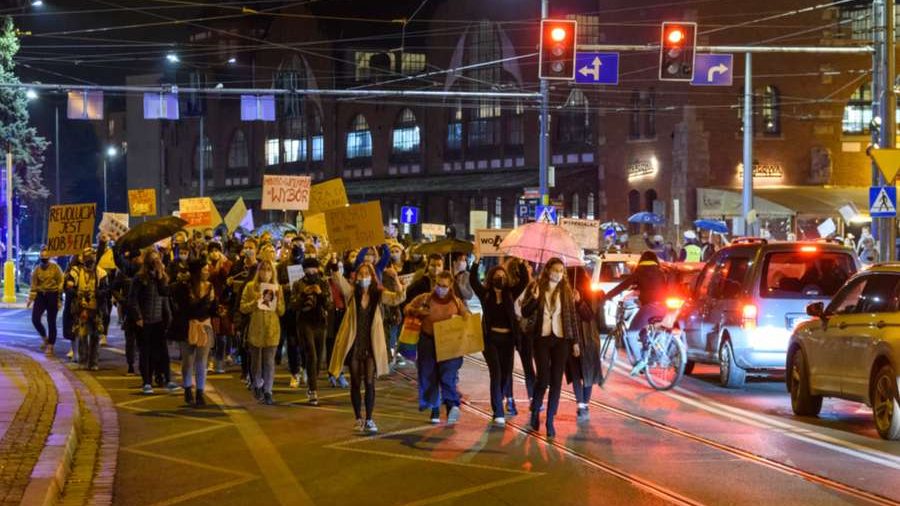In the face of country-wide protests, the government of Poland is delaying the publication of a court ruling which found unconstitutional a law allowing abortions in cases of fetal abnormality.
“There is a discussion going on, and it would be good to take some time for dialogue and for finding a new position in this situation that is difficult and stirs high emotions,” Michal Dworczyk, the head of the Prime Minister’s office, told the Associated Press.
Prime Minister Mateusz Morawiecki has appealed for talks with the protesters and opposition lawmakers to find a solution, the AP reports.
The court ruling, which has no legal power until its publication in the Journal of Laws, had been scheduled to be published Nov. 2.
A group of 119 MPs belonging to three Polish parties had asked the constitutional court to review a 1993 law permitting abortion in cases of fetal abnormality, arguing the law was incompatible with the Polish constitution.
In its Oct. 22 ruling the Constitutional Tribunal in Warsaw declared that the law was unconstitutional. Abortion will continue to remain legal in cases of rape, incest, and risk to the mother’s life.
Approximately 1,000 legal abortions take place in Poland each year. The vast majority are carried out in cases of fetal abnormality.
The court found that abortion in the case of a high probability of severe and irreversible impairment of the fetus, or an incurable disease that threatens its life, was inconsistent with constitutional provisions protecting human life.
Widespread protests, with thousands of people flaunting coronavirus restrictions and filling city streets, began Oct. 22 in response to the ruling.
In addition to disrupting Masses, protesters have scrawled graffiti on church property, vandalized a statue of St. John Paul II, and chanted slogans at clergy. At least 76 people have been detained in connection with protests at churches, and 101 cases are being prosecuted.
Polish president Andrzej Duda initially welcomed the ruling, telling a local newspaper Oct. 23 that he supported the constitutional court’s verdict.
In the face of the protests, Duda said last week that he would propose a bill permitting abortion in cases of fatal fetal abnormality.
Archbishop Marek Jędraszewski of Kraków issued on Oct. 27 an appeal to Catholics to pray and fast, after demonstrators interrupted Sunday Masses across Poland.
Archbishop Stanisław Gądecki of Poznan, president of the Polish bishops’ conference, hailed the verdict.
“By its decision, the constitutional court affirmed that the idea that ‘life is not worth living’ is in flagrant contradiction with the principle of a democratic state governed by law,” Gądecki said.
“The life of every human being, from conception to natural death, has the same value before God and must be protected to the same degree by the state.”
Marta Lempart, a leader of Poland’s pro-abortion movement, has urged Catholics to oppose the Catholic Church’s opposition to abortion in the country, even suggesting the possibility of vandalism or other attacks on Catholic churches.
"Dear Catholics, at the moment, you have a chance to oppose your church. At the moment, you partake in what is going on, in this disgusting stuff the Church is doing. And this is the final warning, because you should revolt, your communities, you - engaged in the life of the church," Lempart said during an Oct. 26 interview with Poland’s Radio ZET.
Polish pro-lifers are inviting Catholics around the world to join a global rosary initiative Nov. 1-8 in the hopes of uniting thousands of people around the world in prayer for unborn children.

